
in Thoreau’s Journal:
A fine clear day after the coolest night & severest frost we have had….
The common milk-weed has begun to fly…

in Thoreau’s Journal:
All fair action in man is the product of enthusiasm –– There is enthusiasm in the sunset. The shell on the shore takes new layers and new tints from year to year with such rapture as the bard writes his poem. There is a thrill in the spring, when it buds and blossoms––there is happiness in the summer––a contentedness in the autumn––a patient repose in the winter.
Nature does nothing in the prose mood, though sometimes grimly with poetic fury, as in earthquakes &c and at other times humorously.
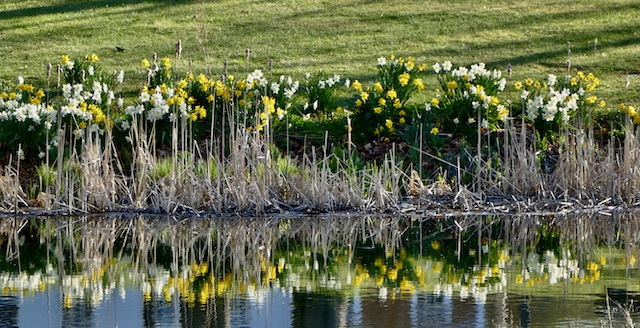

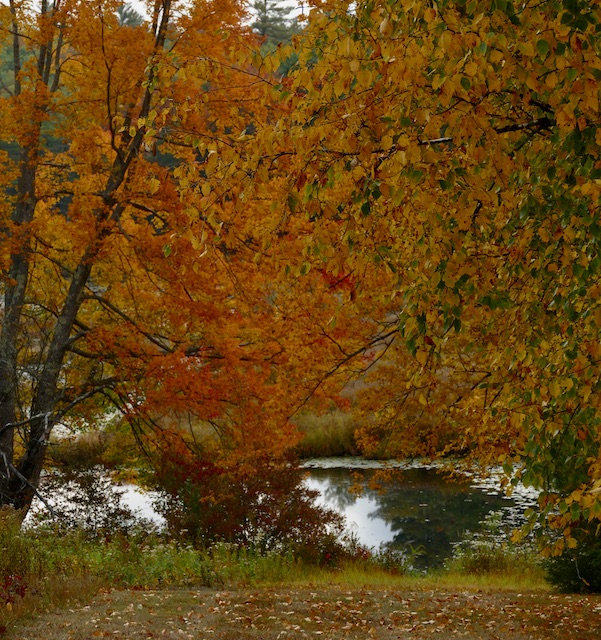
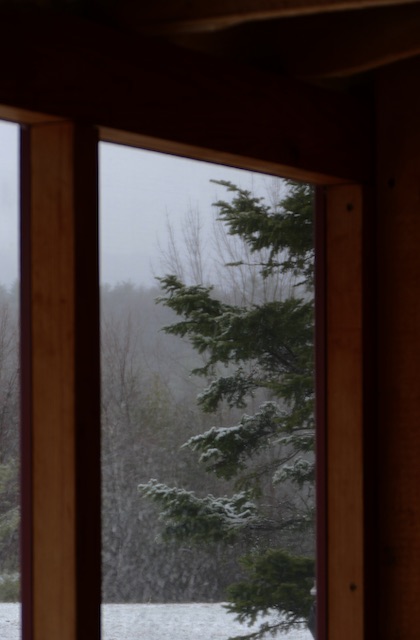
in Thoreau’s Journal:
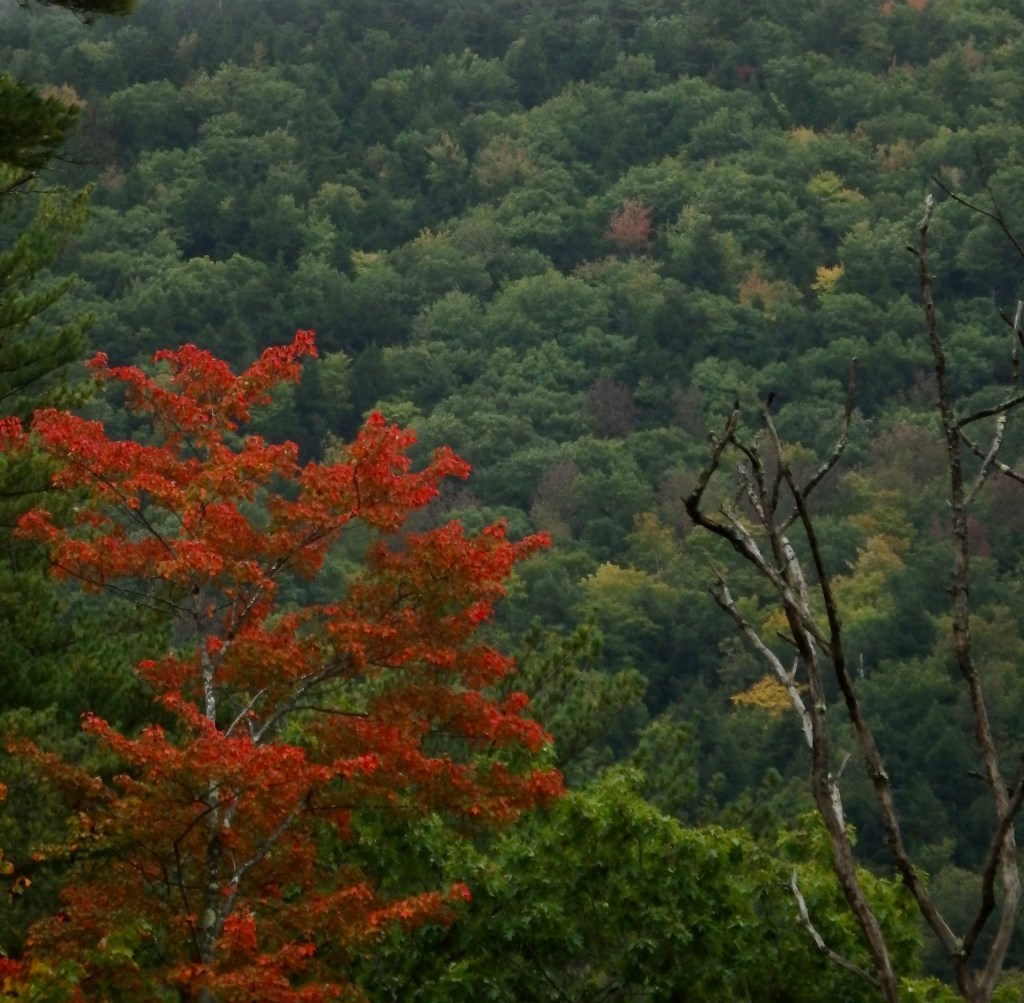
A small red maple has grown, perchance, far away on some moist hillside, a mile from any road, unobserved. It has faithfully discharged the duties of a maple there, all winter and summer, neglected none of its economies, added to its stature in the virtue which belongs to a maple, by a steady growth all summer, and is nearer heaven than it was in the spring, never having gone gadding abroad; and now, in this month of September, when men are turned travellers, hastening to the seaside, or the mountains, or the lakes — in this month of travelling — this modest maple, having ripened its seeds, still without budging an inch, travels on its reputation, runs up its scarlet flag on that hillside, to show that it has finished its summer’s work before all other trees, and withdraws from the contest. Thus that modest worth which no scrutiny could have detected when it was most industrious, is, by the very tint of its maturity, by its very blushes, revealed at last to the careless and distant observer. It rejoices in its existence; its reflections are unalloyed. It is the day of thanksgiving with it. At last, its labors for the year being fully consummated and every leaf ripened to its full, it flashes out conspicuous to the eye of the most casual observer, with all the virtue and beauty of a maple — Acer rubrum. In its hue is no regret nor pining. Its leaves have been asking their parent from time to time in a whisper, “When shall we redden?” It has faithfully husbanded its sap, and builded without babbling nearer and nearer to heaven. Long since it committed its seeds to the winds and has the satisfaction of knowing perhaps that a thousand little well-behaved maples are already established in business somewhere. It deserves well of Mapledom. It has afforded a shelter to the wandering bird. Its autumnal tint shows how it has spent its summer; it is the hue of its virtue.
in Thoreau’s Journal:
The red maple has fairly begun to blush in some places by the river. I see one, by the canal behind Barrett’s mill, all aglow against the sun. These first trees that change are the most interesting, since they are seen against others still freshly green — such brilliant red on green. I go half a mile out of my way to examine such a red banner. A single tree becomes the crowning beauty of some meadowy vale and attracts the attention of the traveller from afar.

At the eleventh hour of the year, some tree which has stood mute and inglorious in some distant vale thus proclaims its character as effectually as if it stood by the highway-side, and it leads our thoughts away from the dusty road into those brave solitudes which it inhabits. The whole tree, thus ripening in advance of its fellows, attains a singular preeminence. I am thrilled at the sight of it, bearing aloft its scarlet standard for its regiment of green-clad foresters around. The forest is the more spirited.
in Thoreau’s Journal:
3 P. M. – To Cliffs via Bear Hill.
As I go through the fields, endeavoring to recover my tone and sanity and to perceive things truly and simply again,

after having been perambulating the bounds of the town all the week, and dealing with the most commonplace and worldly-minded men, and emphatically trivial things, I feel as if I had committed suicide in a sense.
in Thoreau’s Journal:
I have given myself up to nature– I have tried so many Springs & summers & autumns and winters as if I had nothing else to do but to live them–& imbibe whatever nutriment they had for me– I have spent a couple of years, for instance, with the flowers chiefly, having none other so binding engagement as to observe when they opened– I could have afforded to spend a Whole fall observing the changing tints of the foliage.

Ah how I have thriven on solitude & poverty– I cannot overstate this advantage. I do not see how I could have enjoyed it–if the public had been expecting as much of me as there is danger now that they will– If I go abroad lecturing how shall I ever recover the lost winter? It has been my vacation–my season of growth & expansion–a prolonged youth–
in Thoreau’s Journal:
Now for the Aster Tradescanti along low roads, like the Turnpike, swarming with butterflies and bees. Some of them are pink. However unexpected are these later flowers! You thought that Nature had about wound up her affairs. You had seen what she could do this year, and had not noticed a few weeds by the roadside, or mistook them for the remains of summer flowers now hastening to their fall; you thought you knew every twig and leaf by the roadside, and no- thing more was to be looked for there; and now, to your surprise, these ditches are crowded with millions of little stars. They suddenly spring up and face you, with their legions on each side the way, as if they had lain in ambuscade there. The flowering of the ditches. Call them travellers’ thoughts, numerous though small, worth a penny at least, which, sown in spring and summer, in the fall spring up unobserved at first, successively dusted and washed, mingled with nettles and beggar-ticks as a highway harvest. A starry meteoric shower, a milky way, in the flowery kingdom in whose aisles we travel.

Let the traveller bethink himself, elevate and expand his thoughts somewhat, that his successors may oftener hereafter be cheered by the sight of an Aster Novae-Angliae or spectabilis here and there, to remind him that a poet or philosopher has passed this way. The gardener with all his assiduity does not raise such a variety, nor so many successive crops on the same space, as Nature in the very roadside ditches. There they have stood, begrimed with dust and the wash of the road so long, and made acquaintance with passing sheep and cattle and swine, gathering a trivial experience, and now at last the fall rains have come to wash off some of that dust, and even they exhibit these dense flowery panicles as the result of all that experience, as pure for an hour as if they grew by some wild brook-side.
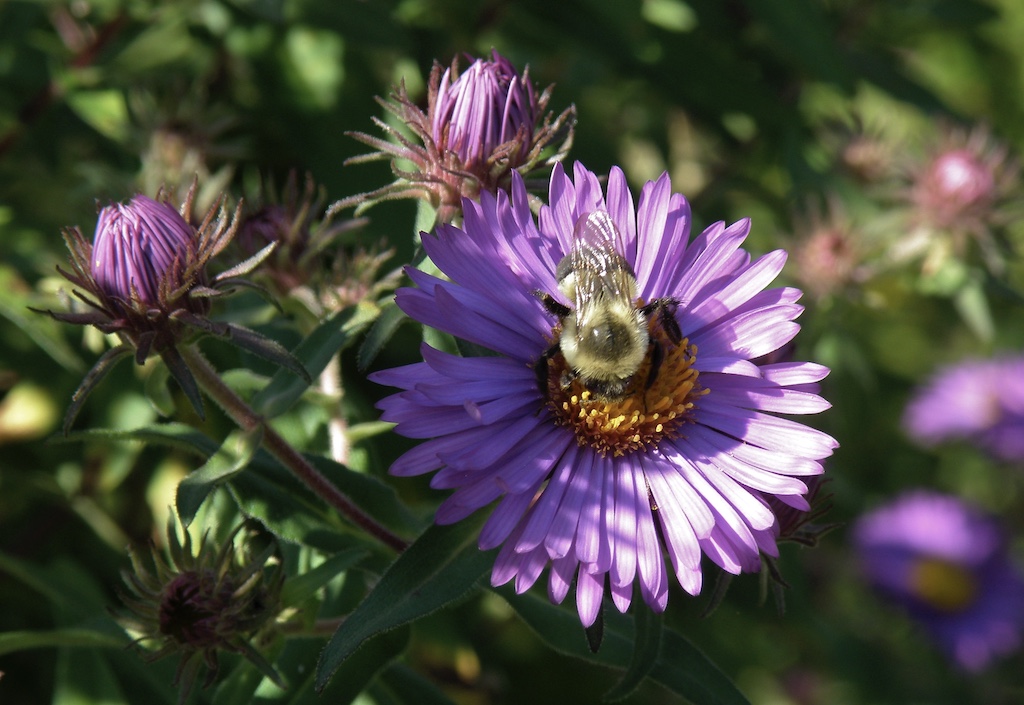
in Thoreau’s Journal:
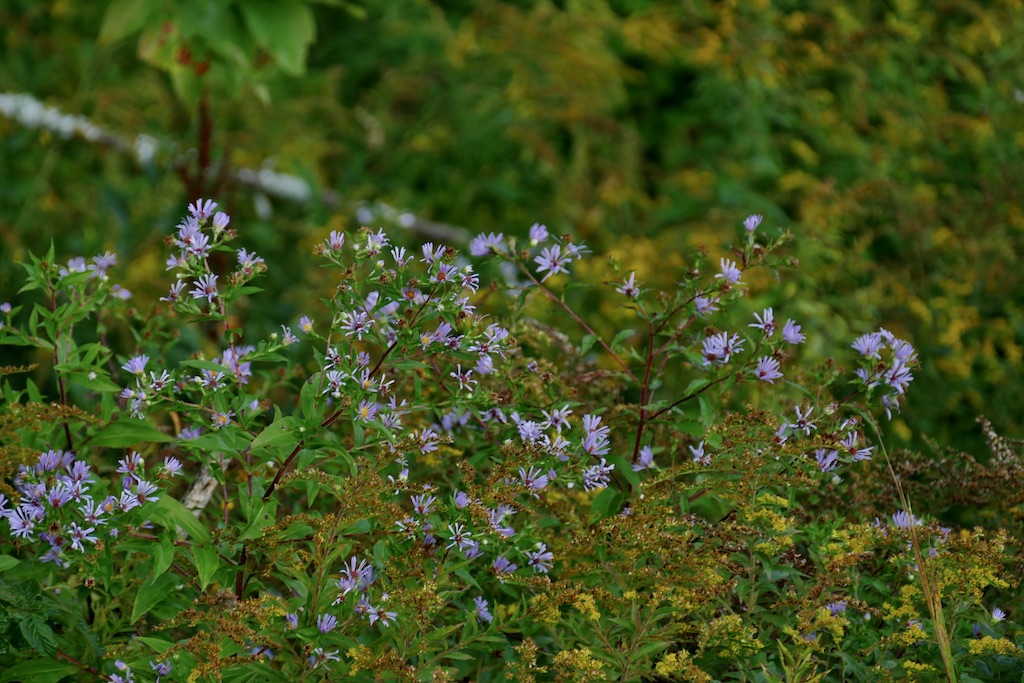
Asters various shades of blue and especially the smaller kinds of dense flowering white ones are more than ever—by the roadsides….The golden glow of autumn concentrated—more golden than the sun….The earth wears different colors or liveries at different seasons. If I come by at this season a golden blaze will salute me here from a thousand suns. How earnestly & rapidly each creature—each flower is fulfilling its part while its day lasts! Nature never lost a day—nor a moment — As the planet in its orbit & around its axis—so do the seasons— —so does time revolve with a rapidity inconceivable.
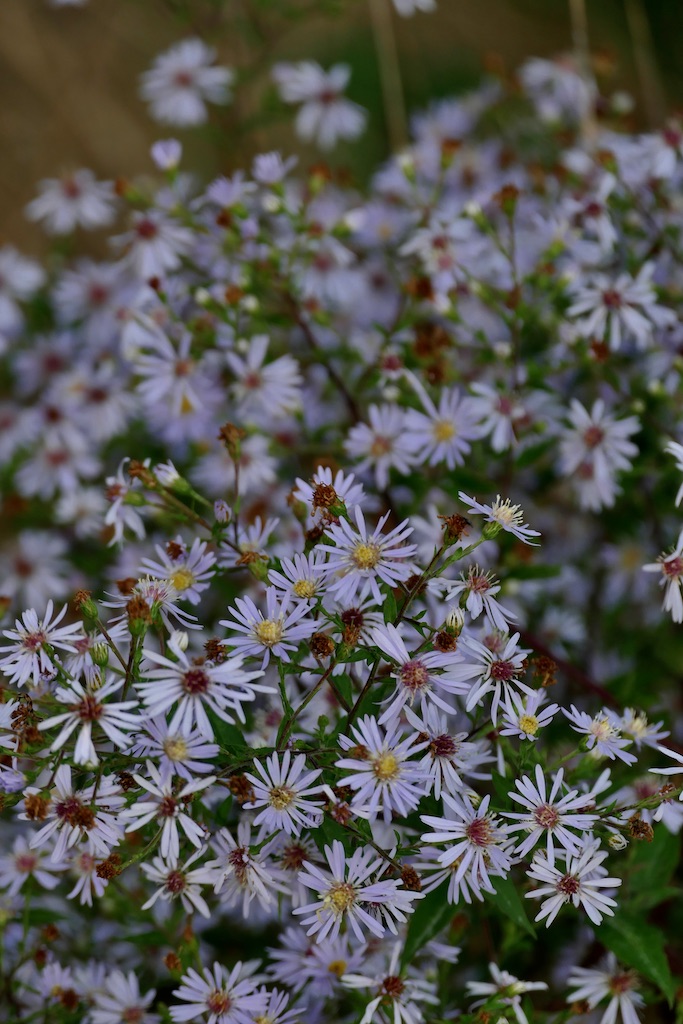
I must walk more with free senses–– It is as bad to study stars & clouds as flowers & stones–– I must let my senses wander as my thoughts––my eyes see without looking. Carlyle said that how to observe was to look––but I say that is rather to see––& the more you look the less you will observe––I have the habit of attention to such excess that my senses get no rest––but suffer from a constant strain. Be not preoccupied with looking. Go not to the object. Let it come to you….What I need is not to look at all––but a true sauntering of the eye.
You must be logged in to post a comment.